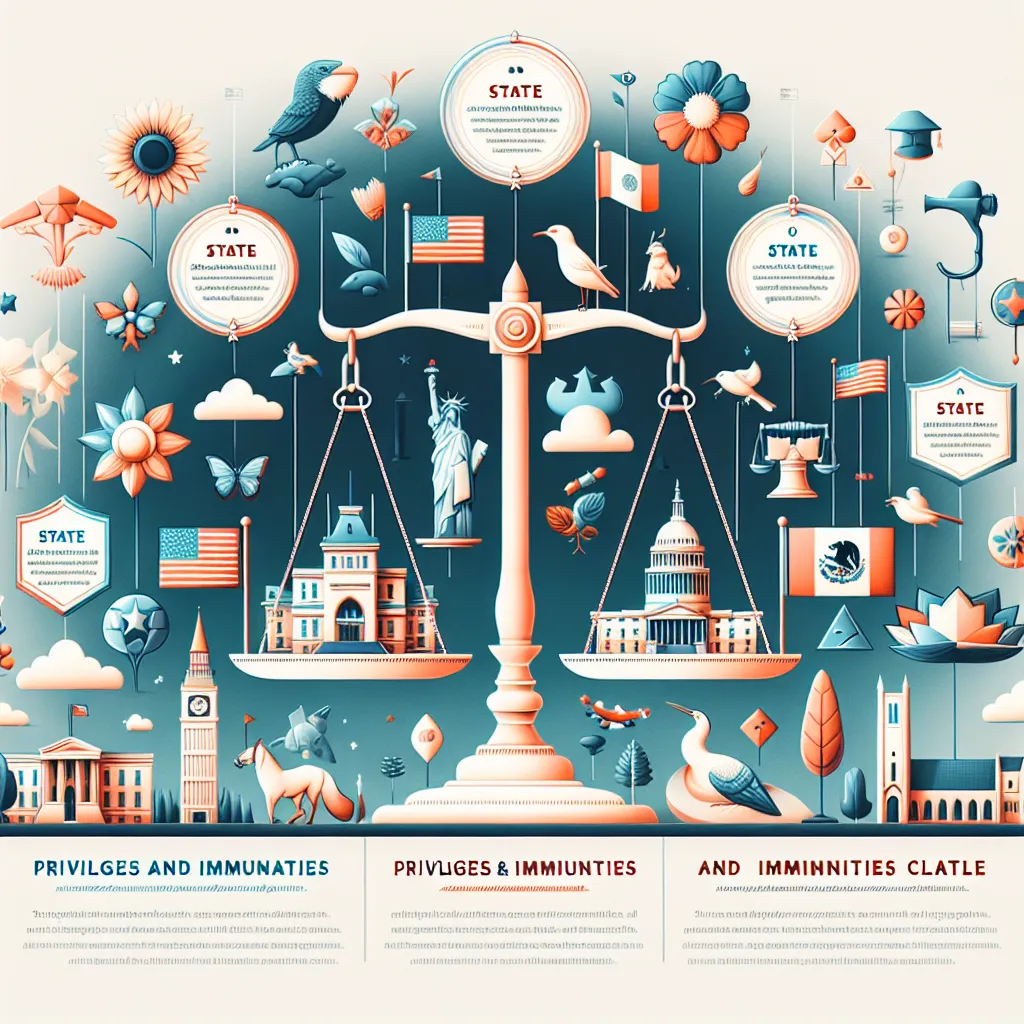Ask AI on The Internet
Question: The Privileges and Immunities Clause in the US Constitution requires that state law treat state residents and non-state residents in the same way for all purposes.
Actually, the statement you've made doesn't fully capture the scope of the Privileges and Immunities Clause in the U.S. Constitution. There are two Privileges and Immunities Clauses to be aware of: 1. **Article IV, Section 2, Clause 1**: This is the Privileges and Immunities Clause most commonly referenced. It provides that "The Citizens of each State shall be entitled to all Privileges and Immunities of Citizens in the several States." This clause ensures that states do not discriminate against citizens of other states in certain fundamental rights or essential activities. However, it doesn't mean that state residents and non-residents must be treated exactly the same in all respects. States can still have legitimate reasons for treating non-residents differently, particularly in areas where states have a substantial interest, such as tuition rates for state universities or licensing requirements. 2. **Fourteenth Amendment, Section 1**: This includes another Privileges or Immunities Clause which reads, "No State shall make or enforce any law which shall abridge the privileges or immunities of citizens of the United States." This clause often focuses on protecting the rights of national citizenship from state interference, but it has been interpreted somewhat narrowly in legal history. In summary, while the Privileges and Immunities Clause in Article IV seeks to protect against arbitrary discrimination towards out-of-state citizens, it does not mandate absolute equality for all purposes. States can still impose different treatment if there is a substantial reason for doing so.
Think your answer is better than the AI's? Post it below.
Other Most Relevant Posts:
Question Tags
If you want your question answered by an AI, click here.







Post your own comment: